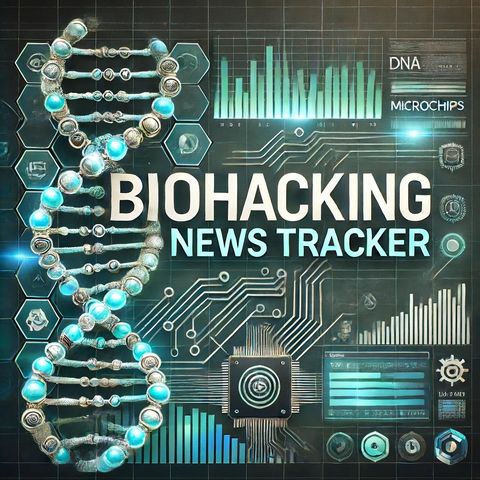"Biohacking Transforms Human Potential: DIY Biology, Nutrigenomics, and Grinder Modifications Reshape the Frontiers of Science"

Descarga y escucha en cualquier lugar
Descarga tus episodios favoritos y disfrútalos, ¡dondequiera que estés! Regístrate o inicia sesión ahora para acceder a la escucha sin conexión.
Descripción
Biohacking represents a broad term amalgamating biology with hacking, delivering a powerful subculture of do-it-yourself biology made up of individuals and communities known as biohackers. These enthusiastic groups and individuals...
mostra másBiohacking can be categorized generally into three different sectors: nutrigenomics, grinder biohacking, and DIY biology.
1. **Nutrigenomics**:
Nutrigenomics is a form of biohacking that delves into the way food influences genes. Here, biohackers aim to understand and manipulate their nutrition to optimize personal health and wellbeing. This can involve altering the diet based on personal genetic data to influence how effectively one metabolizes certain foods, and how nutrients affect aging, metabolism, and even mood.
2. **Grinder Biohacking**:
Grinder biohacking encompasses implanting devices into the human body to extend and enhance physical and cognitive capacities. Grinders might implant microchips for interfacing with technology, magnets for sensing magnetic fields, or develop new senses, such as infrared vision. They often employ a trial-and-error method, emphasizing enhancement over repair.
3. **DIY Biology**:
DIY Biology, often pursued in makeshift or community labs, involves non-professionals experimenting with biology. This could range from genetic engineering, like inserting bioluminescent genes into bacteria to make them glow, to yeast engineering for better beer. The ethos here revolves around open access and democratization of science, making scientific inquiry accessible to anyone.
Biohacking raises interesting ethical, legal, and safety questions. The overarching concern centers around the idea of people conducting scientific experiments without standardized safety protocols, which can pose risks not only to the experimenter but also to the public. Moreover, biohacking also stirs debates on the ethics of self-modification and the potential to exacerbate social inequalities through access to enhancement technologies.
As biohacking continues to evolve, it undoubtedly challenges traditional norms and regulations related to health and biological research. This emerging field necessitates a delicate balance between innovation and safety, underscoring the need for dialogue between biohackers, biologists, and policymakers to navigate the complexities of its future impact on society.
Información
| Autor | QP-4 |
| Organización | William Corbin |
| Página web | - |
| Etiquetas |
Copyright 2024 - Spreaker Inc. an iHeartMedia Company
